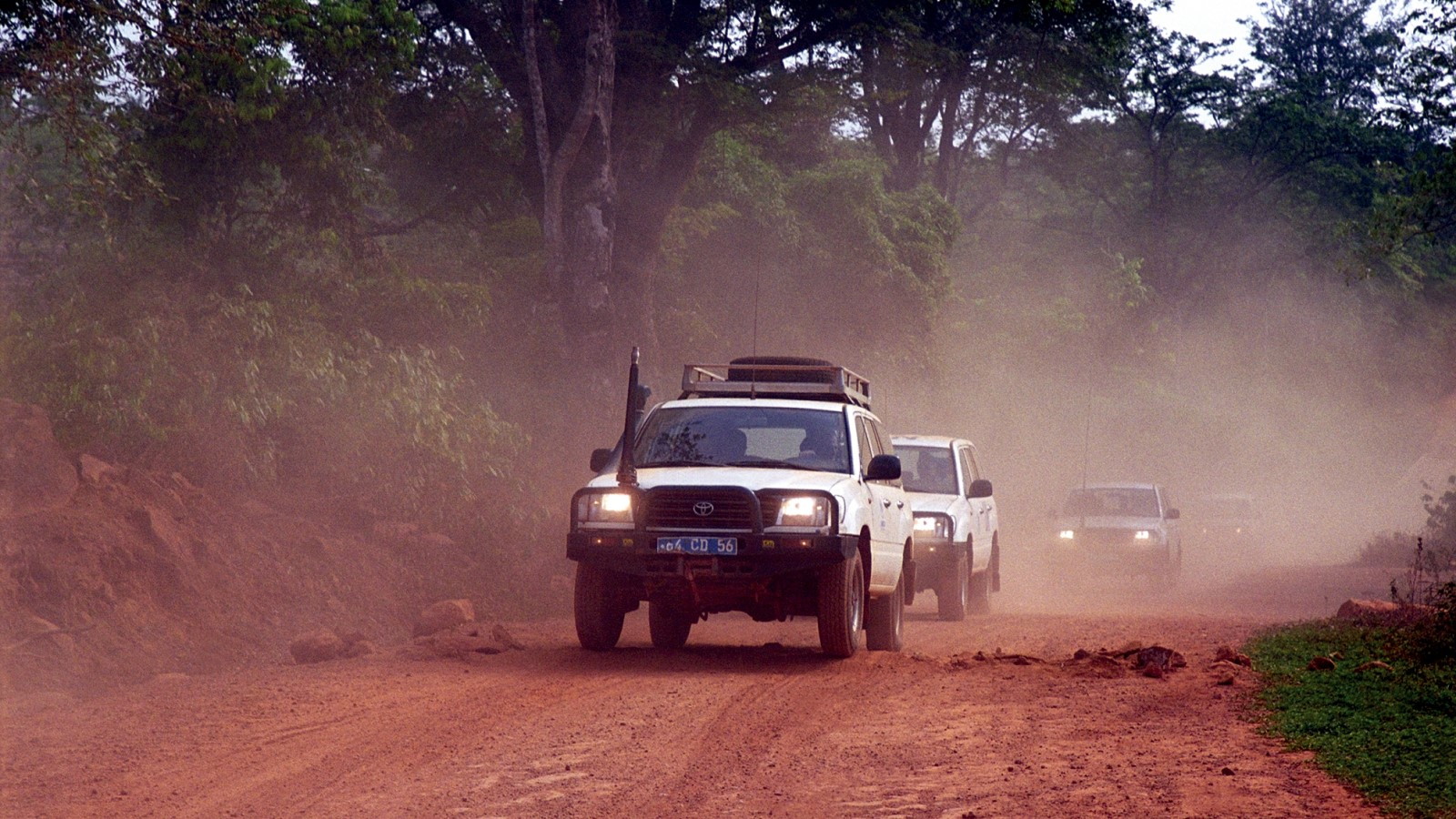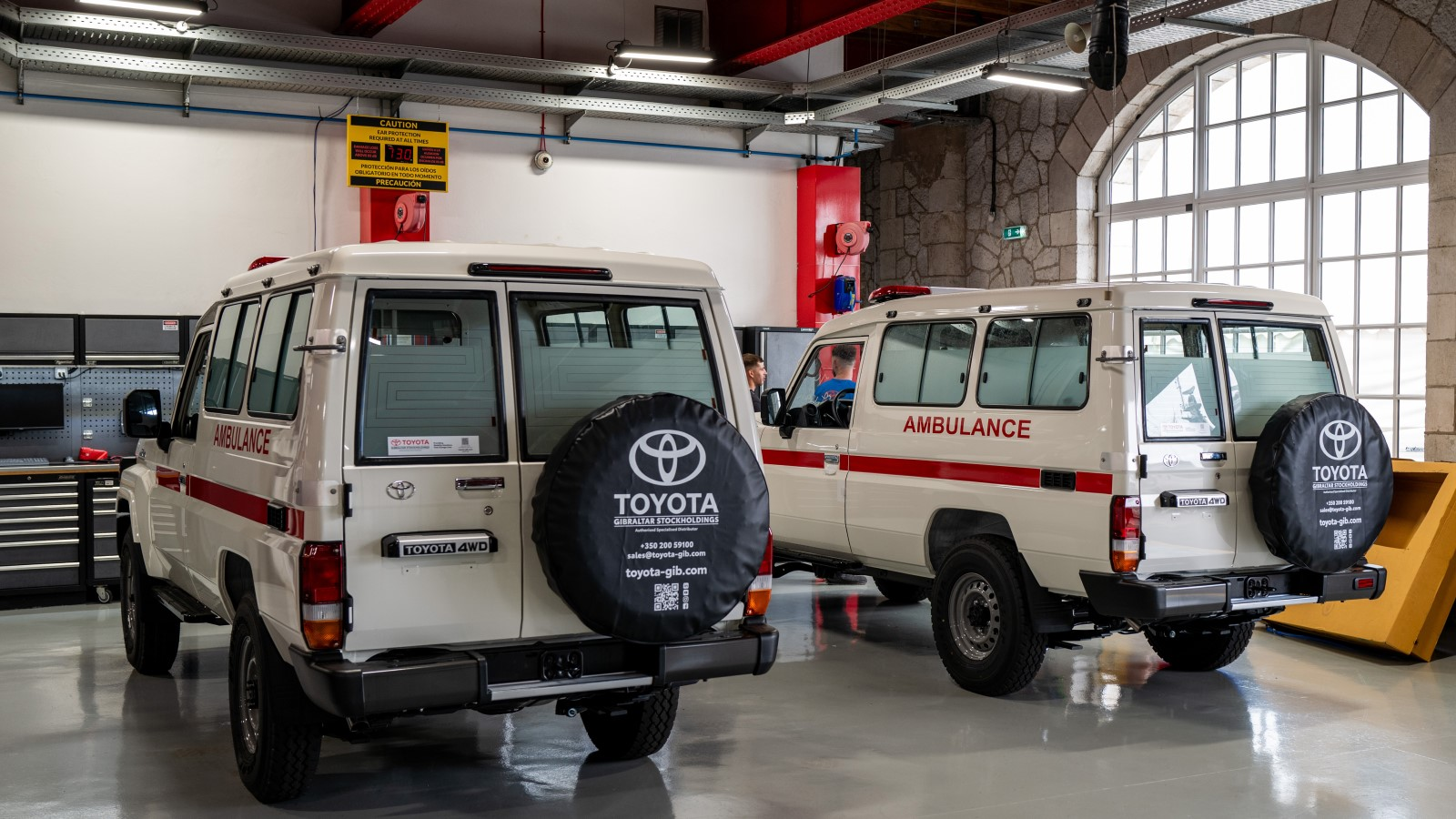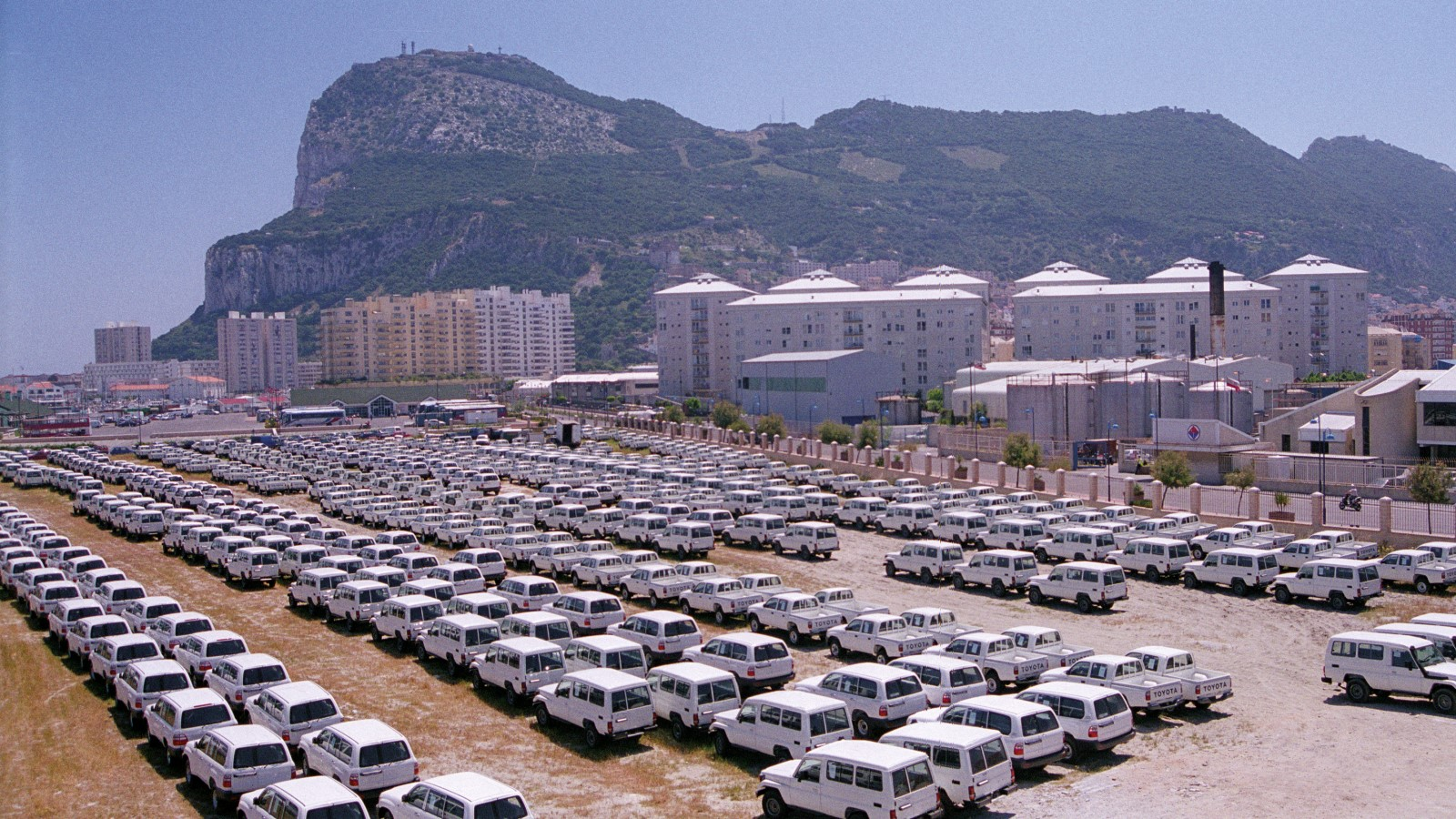Here's How An Outfitter In Gibraltar Builds Toyota Land Cruisers For The Most Extreme Duty Imaginable
Toyota Gibraltar Stockholdings supplies vehicles to charities and other organizations serving some of the roughest corners of Earth.
In 2003, a fleet of white Toyota Hilux trucks was loaded into an Antonov An-124 on the tarmac of Spain's Málaga Airport. Operated by cargo carrier Aircompany Polet, the An-124 was capable of flying the highest gross payload at the time – aside from the gargantuan An-225. It was loaded up and took off on its way to Iraq, where the U.S.-led military invasion was happening. A combined force of troops from the United States, the United Kingdom, Australia and Poland invaded the country and seized control of the capital city Baghdad.
However, the Toyotas onboard didn't take part in the invasion – in fact, quite the opposite happened. Instead, these trucks were strictly meant to provide aid to those in the region dealing with the terrible realities of war.
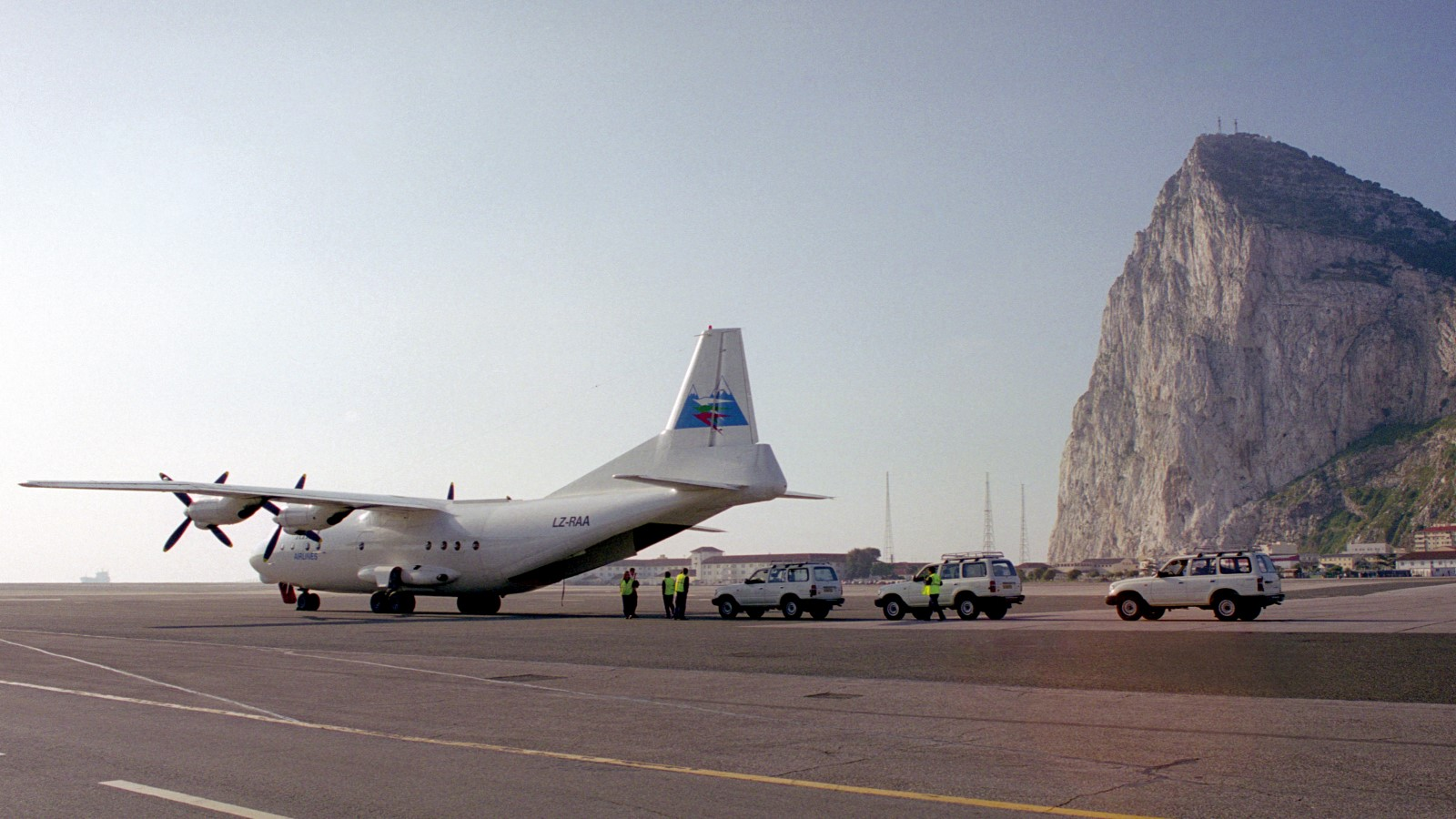
They came from Toyota Gibraltar Stockholdings (TGS), a business specializing in sourcing, preparing, and delivering the toughest Toyota vehicles on the planet to aid organizations around the world. Part of Toyota's distributorship agreement with Toyota Gibraltar Stockholdings is that it only sells vehicles to bona fide aid organizations. No, the Toyota technicals with weapons mounted to the bed that you see on the news are not being purchased from TGS and aren't even legitimately from Toyota at all.
However, you probably have seen vehicles from TGS before in the media. Flick on the news when it's covering any disaster in a developing corner of the world and look for the white Toyotas operated by the United Nations, the International Committee of the Red Cross and any other NGO. Those come from TGS.
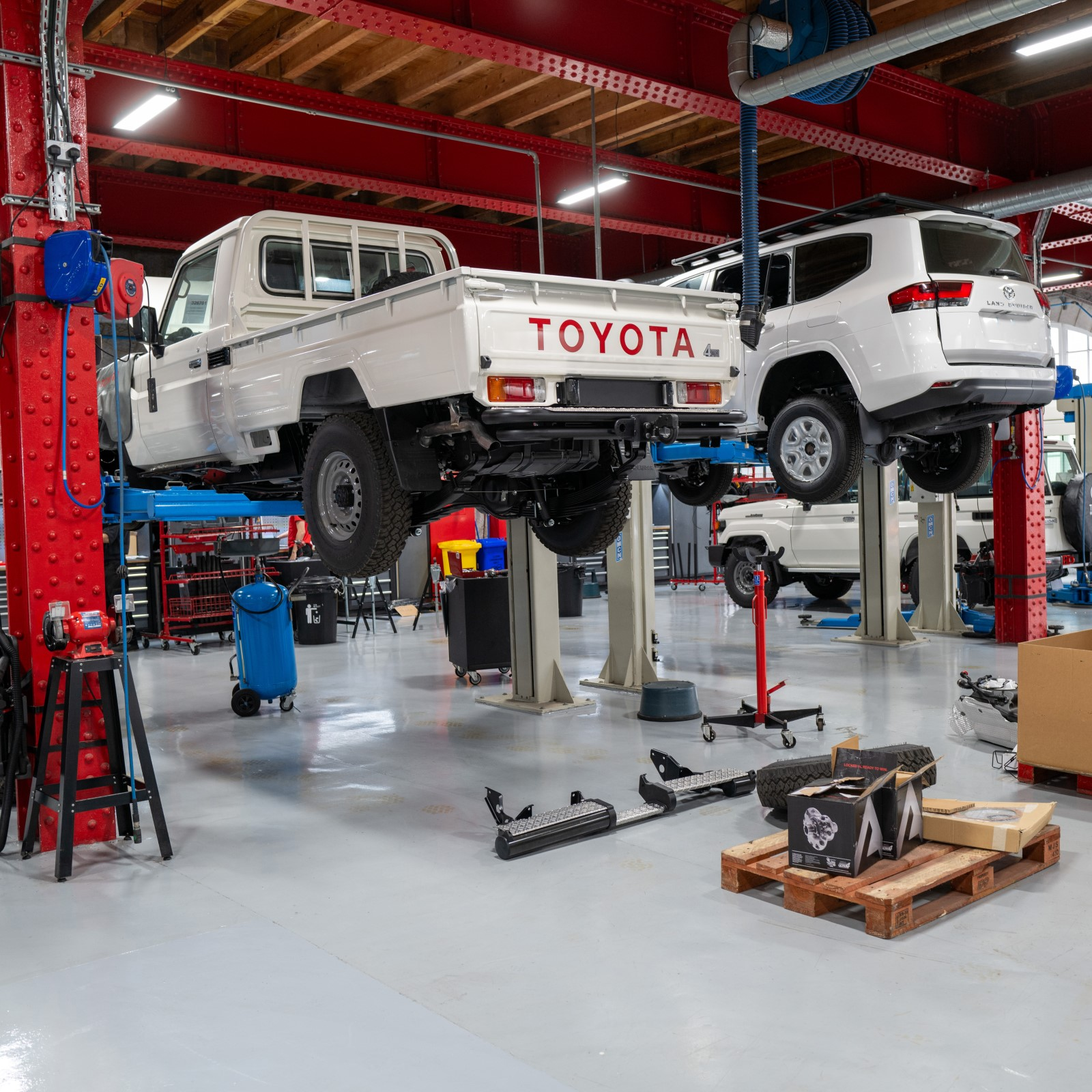
Aid Organizations Only
If it isn't obvious from the name, TGS is located in Gibraltar, a British Overseas Territory positioned right at the tip of the Iberian peninsula. The city of Gibraltar lies in the shadow of the monolithic Rock of Gibraltar, right at the gateway to the Mediterranean Sea. Due to its position, Gibraltar serves as a strategic base for the Royal Navy. In fact, the TGS workshop, warehouse and administrative offices are housed in a restored building that held sails and rigging from an era when Royal Navy sailing ships were based in the Port of Gibraltar.
The company has been supplying NGOs with field-ready Toyotas since 1996. On a recent visit, we learned how the business operates and took a look at how the trucks are prepped for austere environments. Little is known about TGS in the enthusiast world, but that isn't by design. Instead, TGS is a business-to-business platform, selling vehicles only to aid organizations and western governments. This is a stipulation of its status as an officially authorized distributor of Toyota vehicles. Their marketing efforts and communication strategy are meant to help sell vehicles strictly to those organizations, not individual buyers.
The most popular platforms that TGS works on are the 70-series Land Cruiser, the Hilux, the Prado and the Land Cruiser 300. It can also provide modified versions of the Hiace, Corolla, and even the Rav4, too. When touring the workshop, it's clear: The 70-series is the vehicle of choice for the organizations TGS works with. Many clients of TGS are private, but a handful are out in the open, like the aforementioned UN and the International Committee of the Red Cross. Other public clients include Tearfund, World Vision, Peace Corps, and the Swedish Rescue Service.
The vehicles arrive at Sagunto Port in Spain straight from Japan and they're then trucked to the TGS facilities. The spec of the vehicles that TGS requires as a base is very specific. Since they'll be operating in austere environments, they forego the optional electronics and luxuries, favoring crank windows instead of power windows. There's no leather either, just basic black cloth interiors. These are vehicles meant to be used on the job, after all. Another defining characteristic of TGS vehicles is that they arrive with white paint from the factory and most of the time stay white, but many customers – unlike the UN with its white vehicle with signature blue signage – may repaint the cars.
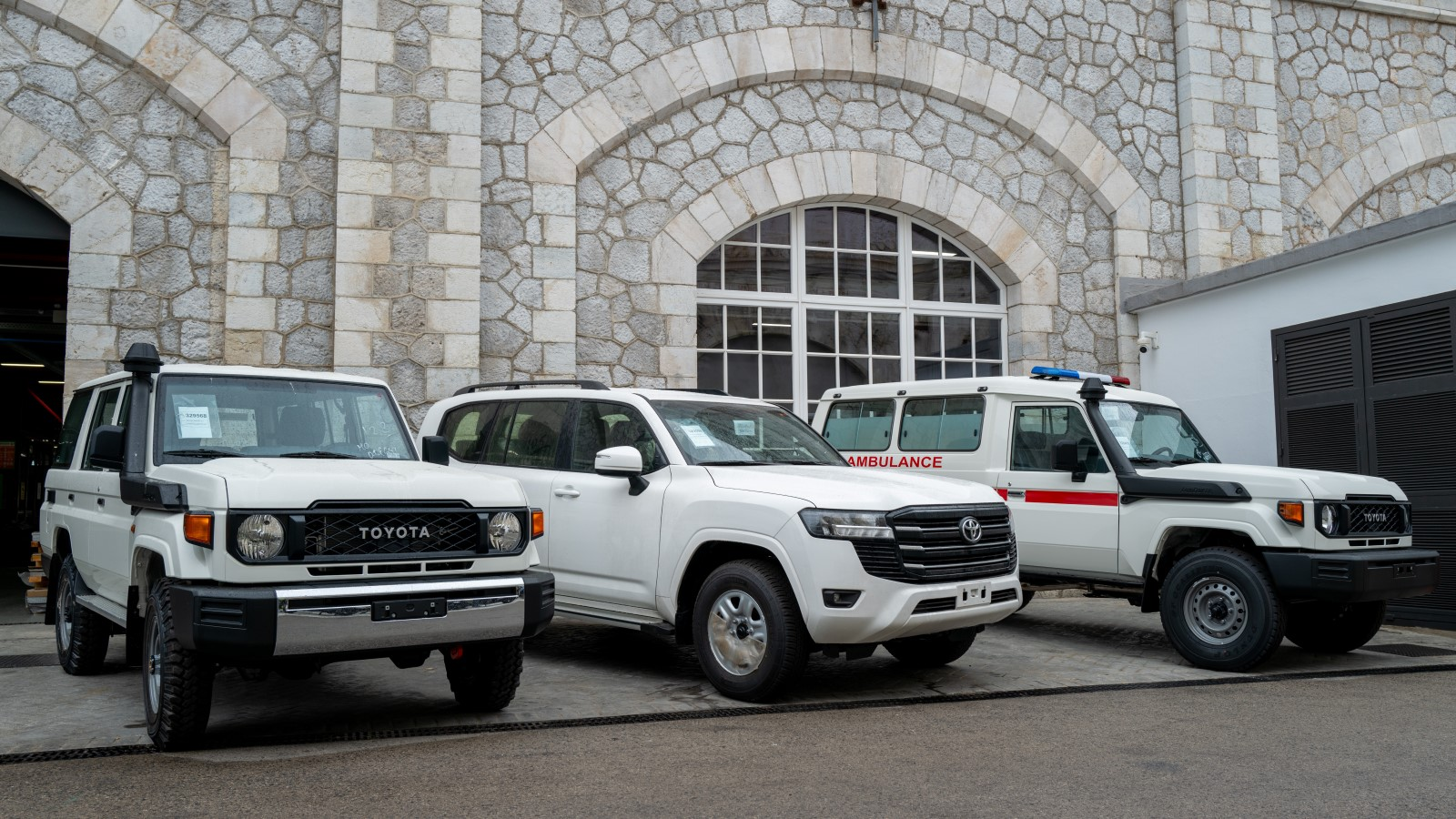
Once the car is in the workshop, the build-out begins. Modifications range from things like a bull bar (produced in conjunction with ARB) and safety equipment, to entire conversions into vehicles like ambulances, refrigerator trucks for delivering vaccines to remote areas and even anti-poaching vehicles for park rangers. Each client works with TGS to determine the best vehicle and build for their needs.
TGS will also paint the vehicle with a client-specific livery if needed once the build-out phase is complete.
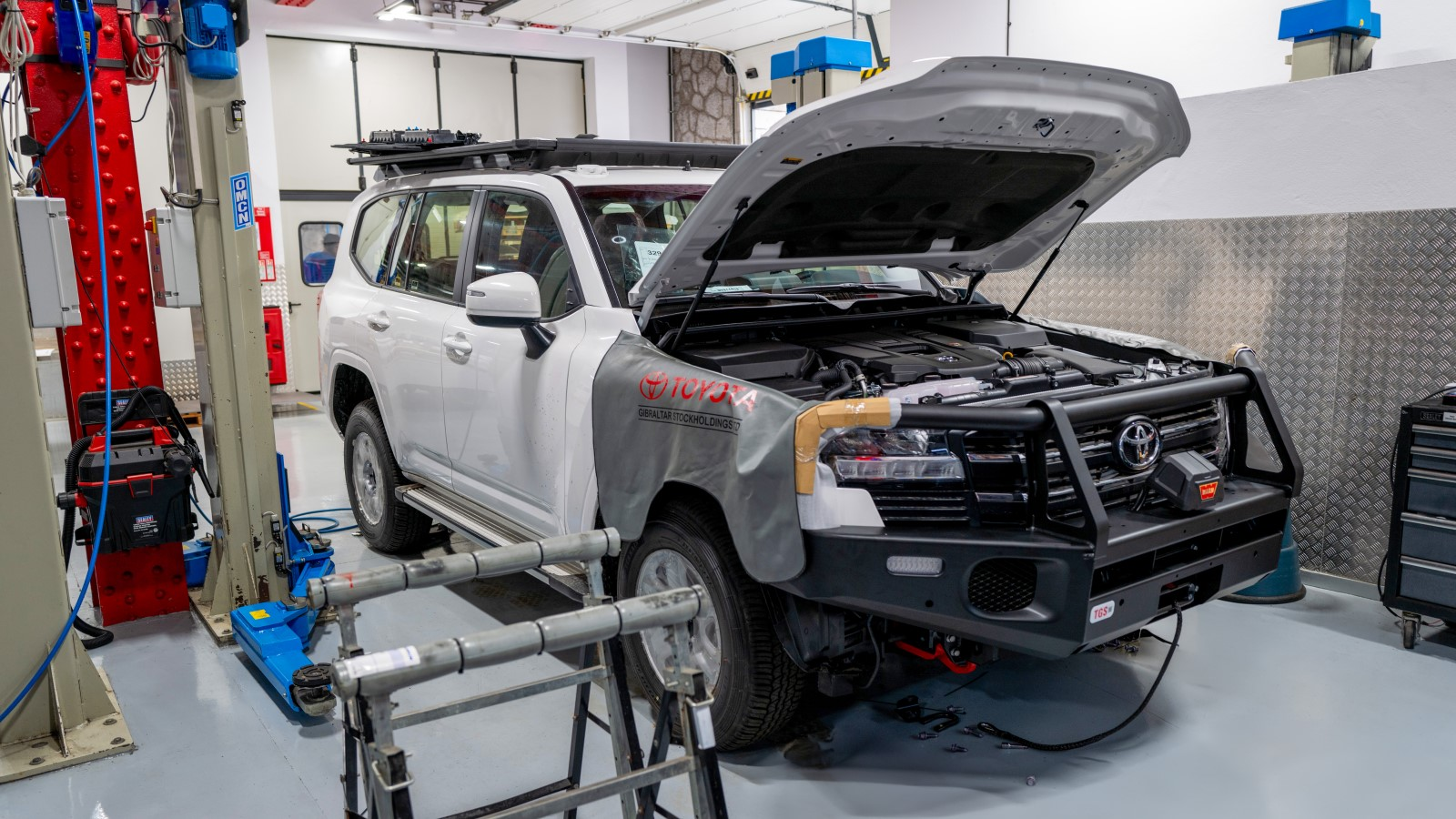
When we visited, a number of ambulance conversions were happening. To build an ambulance, an entire HZJ78 is first broken down, and then the interior bits – like racks and equipment points – are welded into the body of the vehicle. Conversions are far more than a bolt-on affair, they're a complete transformation.
Still The Standard
Another key area that TGS excels in concerns compliance and delivery logistics. It might seem like some of the countries where these vehicles operate would not have stringent safety and emissions standards like you'd find here in America, but that isn't the case. The vehicles still need to meet the standards put forth by the nation they'll operate in. To do this, the compliance team runs a feasibility study on how the importation would work, and makes sure it's 100% legal and suitable for the fuel in the country. They then check that the Toyota network can support the life of the vehicle with servicing and repairs.
This is where the bad news for us Americans comes in: even if you were to find an NGO to sell you one of its retired TGS Land Cruisers or Hiluxes (although it should be noted that even at 200,000 miles they're just getting warmed up), unless it's 25 years old, it simply cannot come into the country. You also can't buy one directly from TGS anyway.
But maybe this one particular case is something we can all agree on in terms of automotive forbidden fruit: these trucks are better off being put to work in far-flung, harsh corners of the globe than in your garage. The world is a better place because of it.
